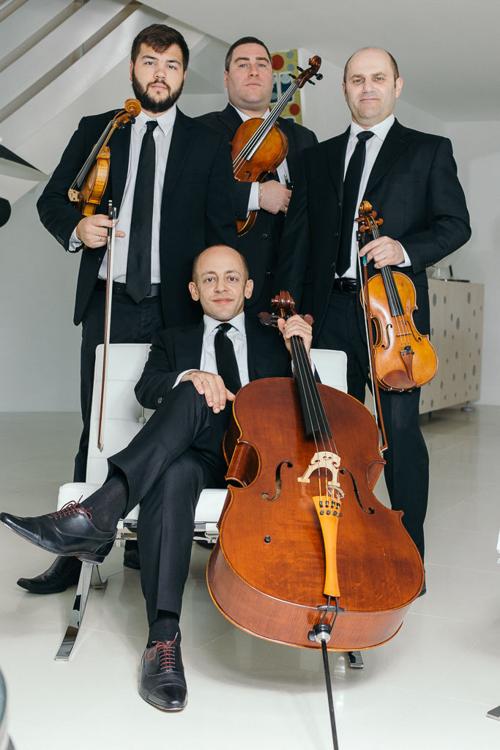The Amernet String Quartet will perform one of Bach’s most monumental and perplexing works with the St. Andrew’s Bach Society on Sunday, Aug. 25.
Bach left no performance instructions for “The Art of the Fugue.” He never stipulated the instrumentation or hinted at how he wanted it to sound beyond the notes on the page. In fact, he never indicated if he intended the piece to be anything more than an exercise in counterpoint — that’s where the musicians follow the leader, each picking up the theme and building on it.
“It’s still not clear to us today, some three centuries later, precisely what motivated Bach to write the piece in the first place, if he had an intention of it to be performed in public or whether it was merely an exercise in counterpoint for his own education,” says Amernet String Quartet cellist Jason Calloway. “We simply don’t know. And there have been many attempts at arranging it for ensembles of homogenous instruments — a string quartet for instance, or wind ensembles. There are certainly arrangements for piano and piano four hands. So performances are very rare.”
One of those rare performances will take place on Sunday, Aug. 25, when Calloway and his Amernet colleagues — violinists Misha Vitenson and Franz Felkl and violist Michael Klotz — perform “The Art of the Fugue” with the St. Andrew’s Bach Society.
“It not only is something that’s wonderful for the audience but something that’s wonderful for the performers,” says Bach Society Director Ben Nisbet.
Sunday’s performance will be the first time the Amernet, the resident ensemble at Florida International University, will ever perform “The Art of the Fugue” publicly.
Not that it hasn’t been on their radar, Calloway says.
“We have studied it. We have worked on it, rehearsed it and thought about it for our own pleasure,” he says. “But even in the best case of a string quartet that has an interest in it, there are very few opportunities to play it.”
Which is why he and his colleagues approached Nisbet not long after they performed at the University of Arizona last spring at the invite of UA music professor Daniel Asia.
“This is a work we’d all dreamt of playing in public for some time,” he says. “We pitched it to Ben knowing how rare it is, and he was as excited as we. It was a natural fit and we happened to have that weekend free.”
The Bach is a big ask, clocking in at 90-plus minutes, which is why Sunday’s concert will include an intermission. It also will include the notes being projected on a screen, Nisbet says, giving the audience a chance to follow along.
“We are going to attempt to bring the audience more inside the piece,” he says.
Calloway says his ensemble will perform the recently released authoritative and scholarly edition of “The Art of the Fugue” that restores the pure musical text with no explicit performance instructions.
“So the rest beyond the notes is entirely up to us,” he explains. “Our best attempt is to perform the music itself in a way that makes clear the interplay of voices, the counterpoint, as that is the only element he has left. And to, as much as possible, avoid getting in the way.”
“I think we hope that you hear the counterpoint as clearly as it appears to us on the printed page,” he adds. “Bach’s basic aesthetic is constant and endless interplay of voices. Certainly part and parcel of the Baroque period and he’s the foremost exponent of it, so we hope that that comes out.”
Calloway says Sunday’s performance is the first of at least two the ensemble will do of “The Art of the Fugue” this season. They are penciled in to perform the work in Miami later this year.
“I’m excited that we’re getting in on the ground floor on this,” Nisbet says.
One of the last times Bach’s “The Art of the Fugue” was performed in its entirety in Tucson was a UA Presents concert in 2002 by the famed Juilliard String Quartet. Several local ensembles have regularly performed excerpts of the work.





